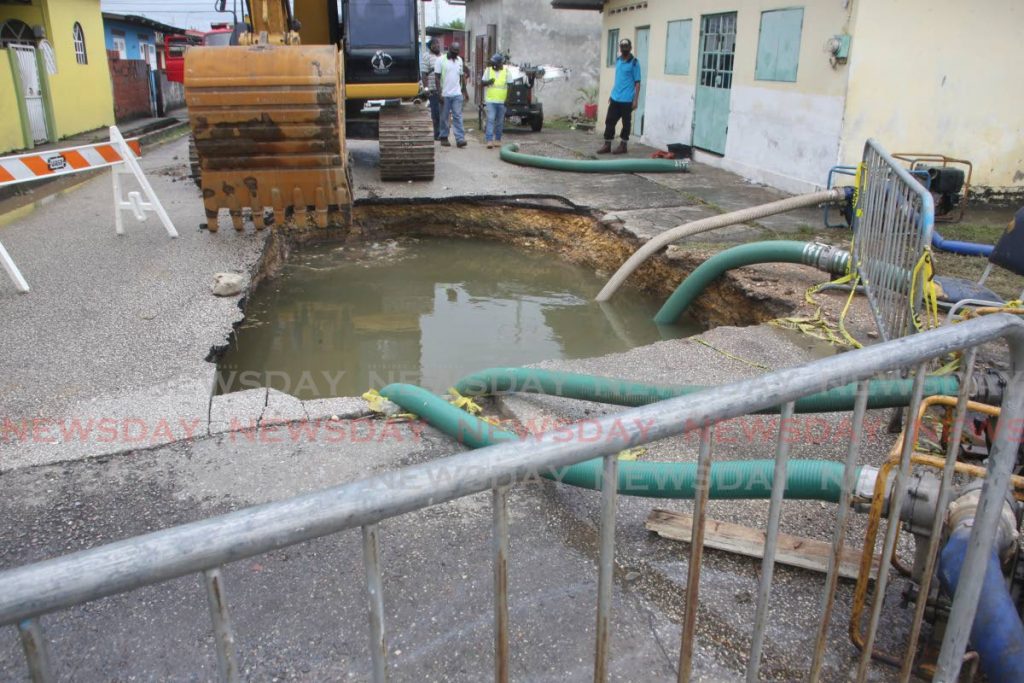Who guards the lines at WASA?

IN MIDDLE-CLASS or upper-class TT, people may have to go without water at times, but it’s hard to imagine they would be left to live with the stench from a huge open sewer line for more than two weeks.
But that's what happened when a sewage-filled sinkhole collapsed at Main Street in Beetham Gardens on August 18.
It took publicity in the media and more than a week for WASA to mobilise a team – which started work on Thursday – to address a massive sinkhole that cut off traffic from one of the main thoroughfares of the area and created a foetid pond more than 15 feet wide and said to be 20 feet deep.
It’s simultaneously dangerous, vile and an embarrassment of neglect.
A week ago, Sherland Sheppard, acting CEO of the state utility, held a press conference to explain in management-speak that WASA faces "an abnormal convergence of major operational issues, which has negatively impacted the service to a number of communities."
Not the words of the promised support that the people of Beetham Gardens, breathing a miasma of filth, would have been expecting.
But they shouldn't feel singled out.
To cite a random recent example, on August 27, Newsday carried a letter by Dr Patrick Quan Kep, who lamented the two weeks it took WASA to repair a leak – which reopened a week later. By the time of his plea to the paper, he had been waiting another three weeks for WASA to do the job properly.
It does no good for Mr Sheppard to tell the public the authority "is up to the task at hand" when there are so many examples demonstrating that it isn't.
WASA's problems may be the result of aging infrastructure, though they aren't only caused by leaking pipes. But it has been using that as an excuse for decades now for low supply – half the water it collects is lost through old lines – and incidents similar to that in Beetham Gardens, an extreme example.
A pervasive culture that fails to insist on performance accountability and has no mandated standards for service delivery dooms the authority to life on humiliating repeat.
The Regulated Industries Commission (RIC), the economic regulator of the water and wastewater sectors, publishes no indicators of WASA's performance.
The RIC instituted quality-of-service standards for T&TEC in 2004 that hold the utility to specific, detailed customer-service requirements.
But 17 years later, the RIC has no equivalent mandatory measurement for WASA. A January 2021 proposal for a performance monitoring and reporting framework for WASA remains at the stage of consultations at the RIC.
The stink that WASA allowed to linger at Beetham Gardens is all the signal the RIC needs to insist that WASA cleans up its operations and functions more effectively in the public interest.


Comments
"Who guards the lines at WASA?"